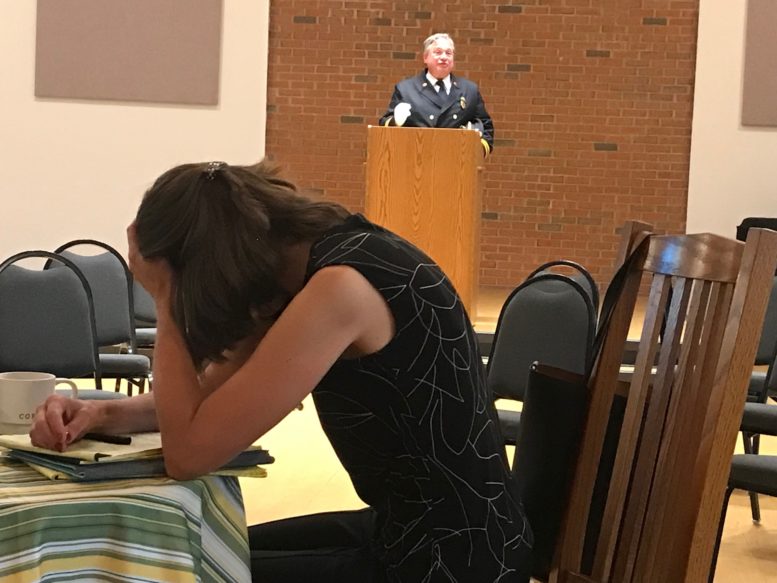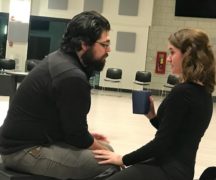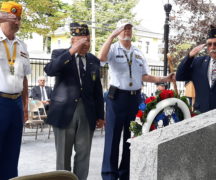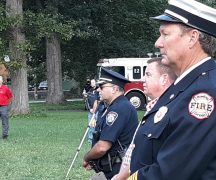By DAVID DUPONT
BG Independent News
Joan heard about the terrorist attacks on the World Trade Center on Sept. 11, 2001, the way many people did. Though she lived in New York City, she first learned of the then unfolding tragedy from her father who called from Oklahoma.
Only people in Oklahoma have their TVs on at 9 a.m. the character, played by Monica Hiris, said.
A plane had hit one of the towers. Her father imagined, as so many of us did, that it was a small plane. Maybe the pilot had a heart attack. Joan, an editor and former war correspondent, speculated it may be terrorism.
Her father asked: “Why would anyone want to do that?”
Joan turned on the TV just in time to see the passenger jet hit the second tower.
The mundane detail of this opening are what makes this opening of the play “The Guys” so searing.
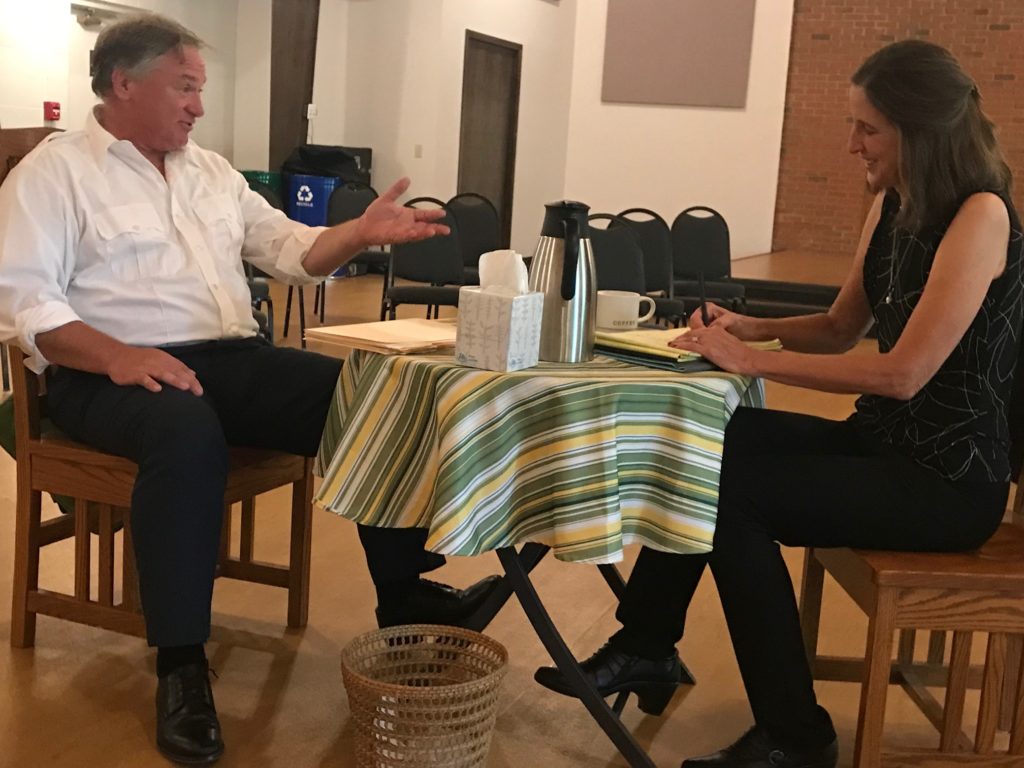
And details accumulate as Joan and Fire Captain Nick Flanagan, played by Lane Hakel, work through the lives of the guys of the title, eight men from the fire company led by Nick. Eight men, one of whom wasn’t even supposed to be on duty, who left the station that morning, never to return, and their bodies never to be found.
“The Guys’ will be presented by TBD Productions Thursday, Friday and Saturday (Sept. 9-11) at 7:30 p.m., and Sunday, Sept. 12, at 2:30 p.m. in the Simpson Garden Park Banquet Room, 1291 Conneaut Ave. Tickets are $17.
TBD is a new troupe meant to start conversations on difficult topics, said founder Warren Clifton. Its inaugural production was about suicide. After each show the audience is welcomed to talk about what they saw and the themes explored. Even at the dress rehearsal with the smallest of audiences, the conversation afterward was heart wrenching as cast and viewers relived memories of that traumatic day.
“It was the day we lost our innocence,” said Clifton said.
The plot is simple enough. The task it sets for Hiris and Hakel is difficult. With the audience surrounding them, they embody these character for 90 minutes. They must live in the skin and nerve systems of two people reeling from the attacks.
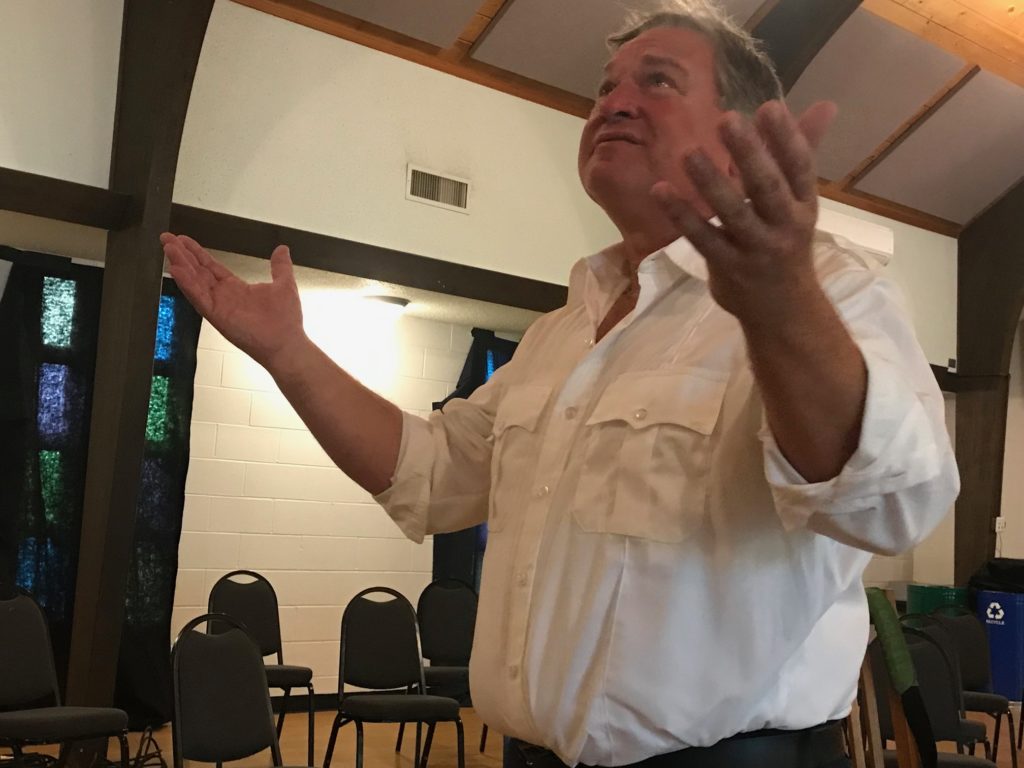
Nick has been asked to deliver eulogies at the individual services for the guys.
But he can’t find the words. Some of the men he barely knew, others he worked with for years. Some he held in high esteem, others he viewed as comic relief.
Joan is at a loss of how she can respond to the attack. She felt helpless as did so many people when it came to helping with the rescue and recovery efforts, it was intellectuals and writers to the back of the line.
But, through the kind of odd, coincidental connection that happens in a metropolis, she meets Nick and they sit across from each other over coffee. She wrests the tiniest, most ordinary details from him, probing his memories and then fashioning them into eulogies.
He is frustrated by all the talk of firefighters being heroes. These were just ordinary men, who led ordinary lives, which they surrendered doing, what he always told new firefighters, was “the best job in the world.”
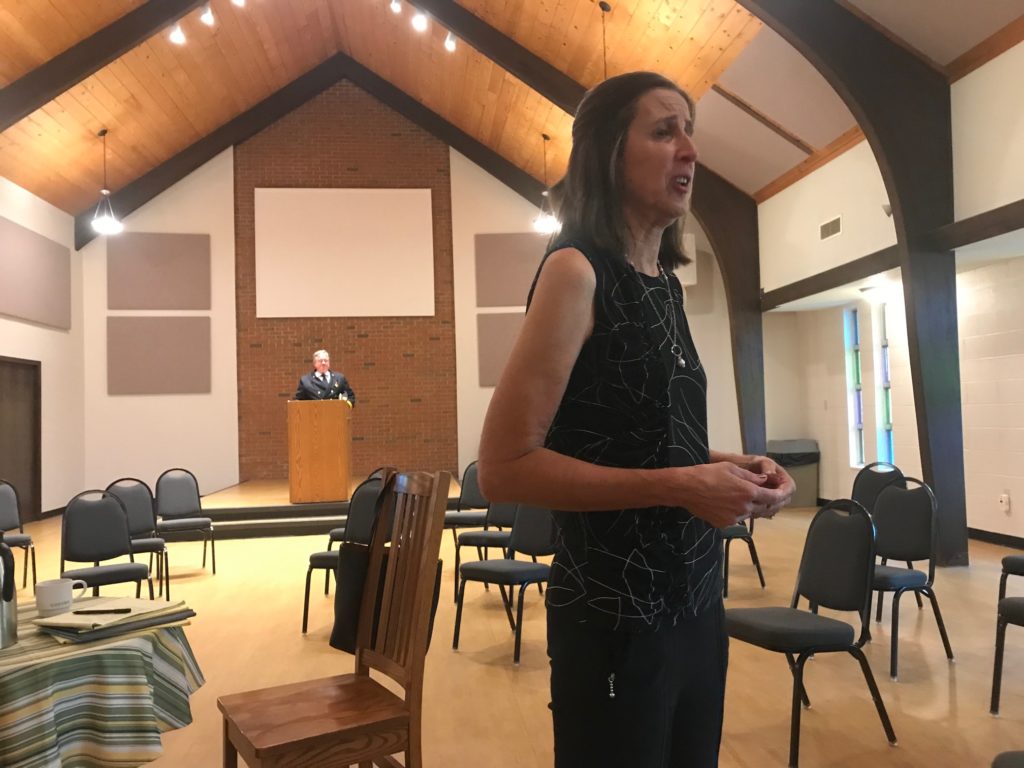
When Joan tosses aside her pad in “a crisis of marginality,” he reassures her. Words are her tools, just like the tools firefighters use.
The play brings to the life the guys in a few words. No more so than the image of the lieutenant, after their truck is disabled, leading his crew in long strides the last two blocks to the burning towers.
Hakel and Hiris inhabit their characters so completely that the audience will forget what a heavy lift this is. Ninety minutes of script for two people is a lot of words to memorize, absorb, and then let flow as if conceived in that moment. Even if the audience knows the actors outside the realm of the theater, during “The Guys” they will be in the presence of Nick and Joan, not Lane and Monica.
“The Guys” strikes the raw nerve of memory. It brings back a day we cannot forget in a work of theater that is itself unforgettable.

